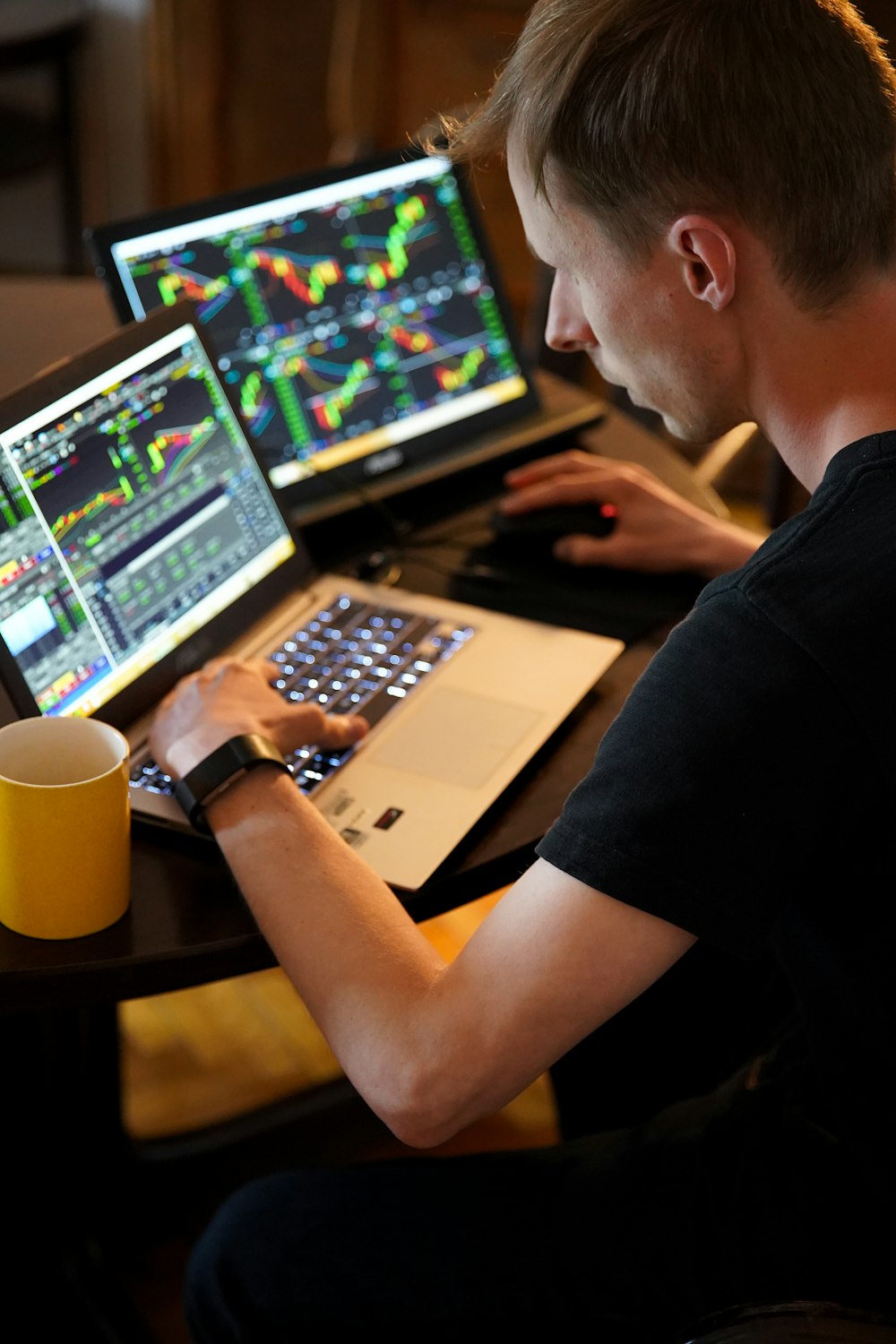“The fact remains that getting people right is not what living is all about anyway. It’s getting them wrong that is living, getting them wrong and wrong and wrong and then, on careful reconsideration, getting them wrong again. That’s how we know we’re alive: we’re wrong.”
-Philip Roth
Meet Nick, who felt kind of lost. It all began innocently enough, a co-worker’s computer screen serving as the portal where financial dreams seemed a mere click away. Charts and graphs.
“What are you doing?” Nick asked him.
“Daytrading.”
Nick looked at the screen. In the corner, in a bright green light, it said +$1200.
“Wait, did you make that money?”
“Just today,” he said, “In the last ten minutes.”
“Holy shit.”
Nick, for whatever reason at that time in his life – his mom had just passed away, so he was even extra lost – added to the fact he was already an impressionable man. This all seemed so fresh. It was a new arena. It was a way out. Kind of like going to the circus. This was a gladiator’s battlefield. But instead of swords and maces, it was numbers, bar graphs and rising percentages.
“I don’t know if I’m smart enough to do this.”
“I can teach you,” his new friend said.
The first few losses were overlooked, regarded as insignificant in the grand scheme of things. “It’s not a straight line up,” his co-worker said, shrugging away the uncertainties and the nagging doubts. And so, Nick kept at it.
And eventually, he started to win.
The thrill, the unpredictability, the possibility of unimaginable wealth—it was all too intoxicating to give up. The line between healthy fascination and addiction grew increasingly blurred.
Months Later
Enter the Covid crash—a tempest that shook the financial markets, taking down the mighty and sparing none. Amidst the chaos, a golden opportunity presented itself—Tesla.
“Would you look at this!” he said.
The voice of his wife, full of unwavering conviction, echoed in his ears. She liked what he was doing, when he was winning. She was urging him to dive in, to seize the moment. “Oh my God, Tesla’s at 180!” she screamed. “Throw all your money into it!”
“I will!” he said.
But just then, strangely enough, the phone rang.
It was his co-worker, who for all practical purposes, had now become his best friend.
With vehement urgency, his co-worker and new best friend warned against the Tesla gamble. His rationale was riddled with doom, speaking of an impending crash, blood on the streets, and burning money. Not to mentioned he hated Tesla, which was only a “car company” and all of this was a “great con”.
Nick didn’t think that way. But there was something deep and triggering in the way his co-worker kept saying his name.
“Niiiiick,” he said. “Niiiiick.”
It was like a bizarre hypnosis mixed in with massive chaos, uncertainty, and fear.
Nick, like many of us tend to, relied on the wisdom of this trusted friend and mentor who had taken him so far, unaware of the emotional entanglement influencing his decision.
“Okay,” he said. But part of him felt really upset. “But what if you’re wrong?”
“I’m not,” his friend said, with absolute cerainty.
“Okay,” he said again. “I’ll go along with it this time.”
The die was cast; he chose to sit it out.
Soon, what followed was a heartbreaking rise in Tesla’s value—an almost tenfold increase, a missed fortune. It was a catastrophe, a personal tragedy, the dreaded FOMO “what if” scenario come to life.
He realized if he hadn’t listened to his friend, he would have made millions of dollars.
As much as he tried to be “mature” about it – it took a toll on Nick. His bitterness towards his friend, the self-reproach, the pursuit of the lost opportunity—all of it spiraled into a frenzy of bad trades, leading to more loss.
Nick was, as Roth would describe, “getting people wrong and wrong and wrong.” It wasn’t just about his best friend or the stock market; it was about himself. He was wrong about what mattered most—his family, his peace of mind, his own happiness.
Plus, being able to make his own decisions, and to not listen to anyone else. And worse yet, part of him felt like a coward, like on some level he had been dominated.
Niiiick, Niiiiick, kept ringing through his ears. Where had he heard that before? With that strange tone?
Whatever, he thought.
And one day he just lost it on his new friend. “Just so you know, you really fucked up my family,” he said.
“That’s not my fault,” his friend said. “I was just offering my opinion.”
“Yeah? Well, it was the way you said it. Like you would do anything, and I mean anything, to make me not make that trade.”
“Of course I would! To me it was a terrible trade,” he said.
It was hard to stay mad at his friend who was only trying to protect him.
On some level, then, he knew he was playing the victim.
And then, not thinking correctly, he kept trading.
The World of Gambling

As with any addiction, you don’t know you’re in it until it’s basically too late. It’s all fun and games, this romantic thing. But as the losses mounted and the toll it took on his family life became unbearable, Nick realized he needed help.
So he got a therapist. Again. Wasn’t he just here?, part of him thought. He had been here once for his mom. And now he had shown up again.
Why did money hold such a powerful sway over his emotions? Why was it the linchpin around which his happiness orbited?
Ah, the eternal question—was he merely playing out a script written centuries ago? Maybe it had something to do with being a man, he said to himself. Perhaps there was a primitive allure in the hunt for financial success, a remnant of ancient times when the hunter ventured out into the wild to capture prey, bring home the spoils, and thereby provide for his family.
Could it be that these primal instincts, hardcoded into the DNA of mankind, were leading him astray in the modern world of stocks and trades? He pondered upon this conundrum in his therapy sessions, adding another layer to the intricate tapestry of his self-discovery journey.
This narrative was not uncommon—countless men and women, driven by the primal instinct to secure their future and their family’s well-being, were drawn into the volatile whirlpool of the stock market, convinced they were merely responding to their hardwiring. But the hard reality of the world today is that it is far removed from the primal wilderness of our ancestors. The ‘hunt’ in the stock market, unlike the pursuit of a prey, is an unpredictable gamble, susceptible to countless factors beyond our control.
And here’s where the line blurs between providing and gambling. As he discovered, the addiction to the thrill of the hunt, the unpredictable, and the potential for an enormous reward was no different from the allure of a casino’s glitzy charm. The hunting instinct, unfortunately, had been manipulated into a gambling addiction, holding him in its vice-like grip.
Niiick, ran through his mind. And suddenly it occurred to him. That voice! It was the voice of his Mom and Dad! The tone they spoke to him – it was a commanding “Don’t question. Do.”
His mother had always told him to stop putting up a fight whenever she told him to do something, and to just go along with it. At some point, he acquiesced, knowing that would be so much easier than fighting every two seconds over every little point.
But now, here he was, years later, not fighting when it meant the most.
Regardless, he thought, I’m human. And as such, humans make mistakes. Especially in times of massive chaos.
He wondered what he could learn from this?
He started listening to podcasts on people who had made money in their lives. Often, he noticed, that one of the familiar themes was with people who had lost small fortunes before they actually built their wealth – and thus, this was a road, for whatever reason, they had to traverse. To find themselves!
And so he started focusing on what mattered.
Life, as he came to realize, was not about obsessing over ticker charts and market trends. It was about doing what he loved – writing, playing music, building businesses, helping people, spending quality time with his family. Yes, he hadn’t made all his money back, but he had found something much more valuable—he had his life!
“I’m actually happy we didn’t win that Tesla money,” his wife told him late one night. “Because then you would have been stuck there behind that screen all day.”
And so, it wasn’t a loss after all.
It was a narrow escape from a lifetime imprisoned behind charts and graphs.
It was a gift—the gift of time, of family, of peace. He realized that life is too short to be sitting behind some screen like a zombie.
Today, Nick looks back on his daytrading addiction with the wisdom of hindsight and the grace of survival. His days are now filled with purpose and meaning. He’s learned, as Roth says, to get things wrong, then reconsider and get them wrong again. And he’s okay with that. Because in getting things wrong, he’s found a path that feels right. He’s found life beyond that bright green light, and that, he realizes, is the real fortune.
John Michaels, a Missoula native and author, has been captivating readers with his writing for years. A graduate of Brown University’s esteemed creative writing program, Michaels has spent the majority of his career crafting stories that resonate with his readers and capture the essence of the human experience. Despite the demands of raising children, Michaels has continued to pursue his passions, finding solace in the bustling downtown Missoula scene. There, he spends his free time honing his craft, whether it be working on short stories, playing music, or dedicating himself to his work at Sunflower Counseling, MT.


